When it comes to caring for your furry friend, it’s easy to assume that your pantry is a treasure trove of safe snacks. The reality, however, is a bit more complex. Many common foods that are perfectly fine for you can pose serious health risks to your dog. Understanding what these are can help you avoid accidental harm and keep your pet wagging their tail in good health for years to come. Here are 15 everyday foods you should keep out of your dog’s diet.
1. Chocolate

Ah, chocolate: the quintessential delight for many people. But for dogs, it’s a recipe for disaster. The culprit here is theobromine, a compound found in cocoa that dogs metabolize much more slowly than humans do. This can lead to a toxic buildup in their system, resulting in symptoms ranging from diarrhea and vomiting to seizures and, in severe cases, death.
According to the American Society for the Prevention of Cruelty to Animals (ASPCA), dark chocolate and baking chocolate are particularly dangerous due to their higher theobromine levels.
As tempting as it may be to share a treat with those soulful eyes staring up at you, it’s a kindness that could have dire consequences. Instead, stock up on dog-safe treats that will delight them without the risk. Always keep your chocolate stash securely out of paws’ reach.
2. Grapes and Raisins
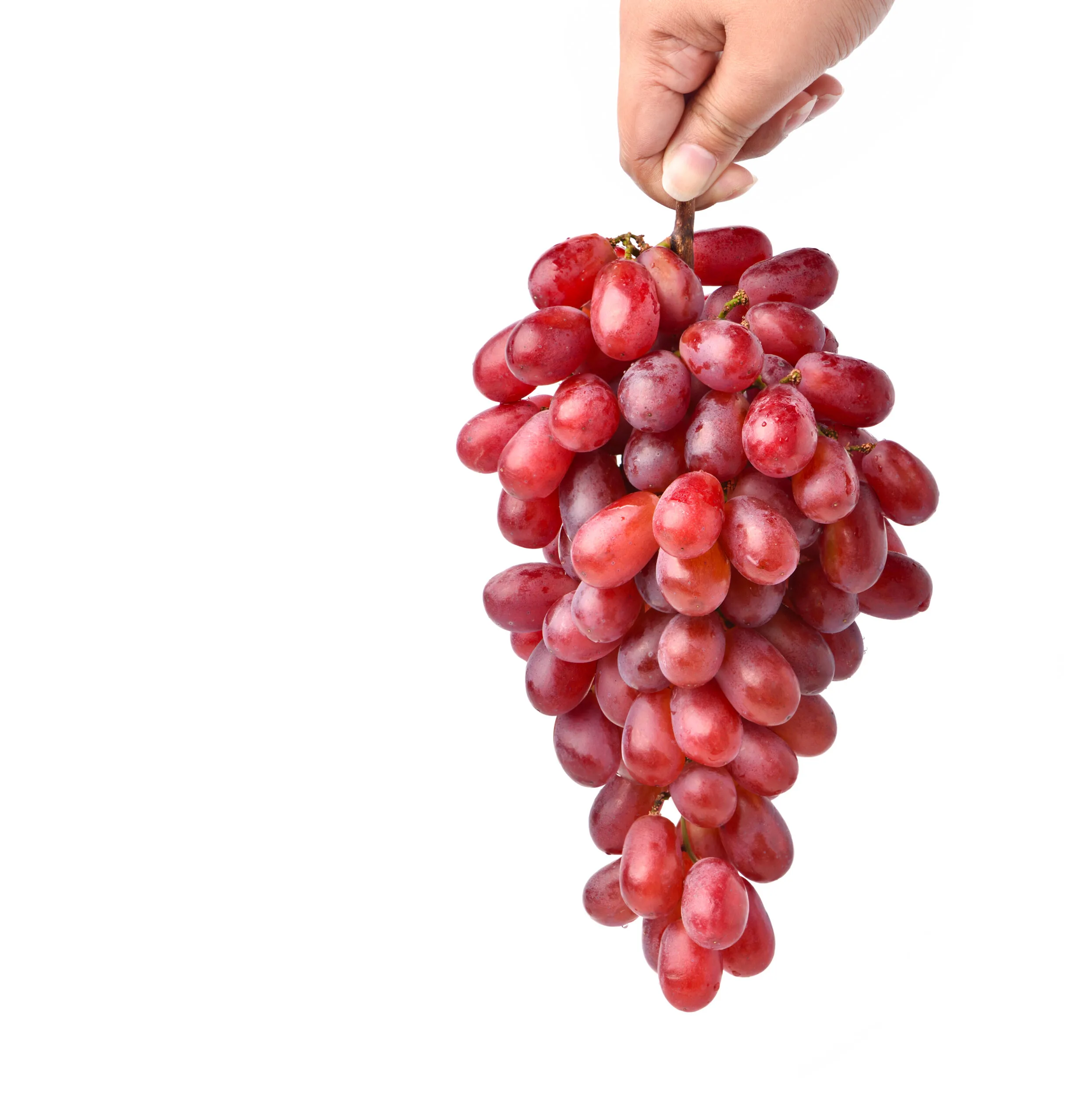
Grapes and raisins may seem like a harmless, healthy snack, but they are surprisingly toxic to dogs. The exact cause of their toxicity remains unknown, but even small amounts can lead to sudden kidney failure. Symptoms like vomiting, lethargy, and loss of appetite can appear within a few hours of ingestion. In severe cases, it can result in kidney failure and even be fatal.
It’s crucial to act quickly if you suspect your dog has consumed grapes or raisins. Inducing vomiting and seeking veterinary care promptly can make a significant difference in their recovery. In the long run, it’s best to keep these fruits entirely out of reach. Educate friends and family about the risks, as this isn’t common knowledge.
3. Onions and Garlic
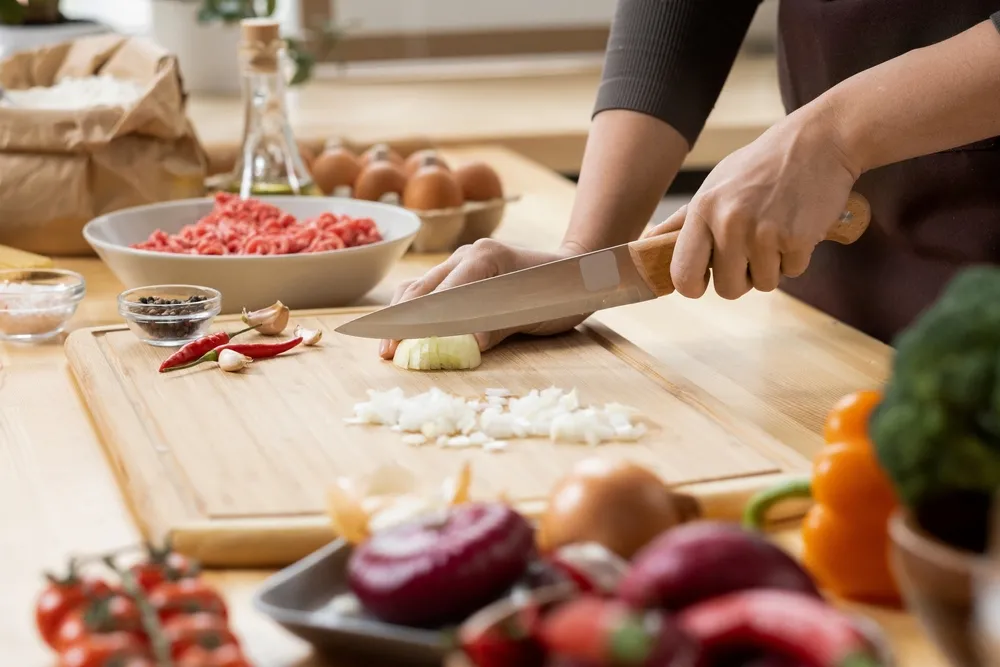
Onions and garlic, whether raw, cooked, or powdered, can wreak havoc on your dog’s red blood cells, leading to anemia. These aromatic staples in many people’s kitchens are part of the allium family, which also includes leeks and chives — all harmful to dogs. Even a small amount can cause weakness, vomiting, and breathing difficulties.
A study published in the Journal of Veterinary Medical Science highlights the damaging effects of allium species on dogs, noting that repeated ingestion can lead to more severe symptoms. As you cook, be mindful of where these ingredients might land and avoid giving your pet table scraps during meals that include them. Opt for dog-friendly herbs when preparing homemade treats or meals for your furry companion. This small change can significantly impact their long-term health.
4. Avocado
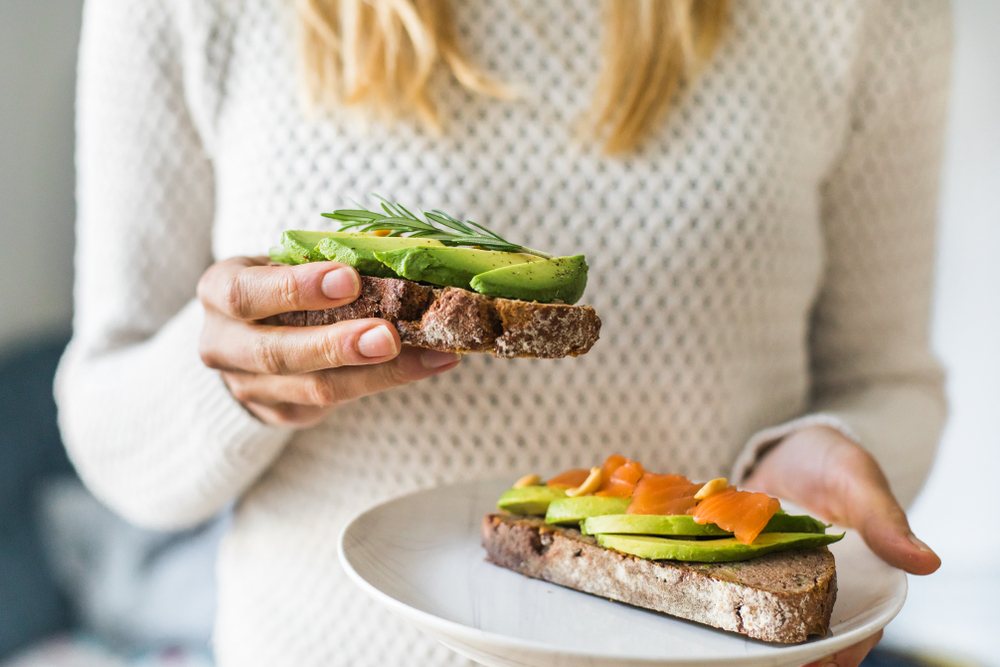
While avocados are hailed as a superfood for people, they are a no-go for dogs. The danger lies in a toxin called persin, which is found in the fruit, pit, and leaves. Consumption can lead to vomiting and diarrhea, and the large pit is a choking hazard or can cause an intestinal blockage.
If you’re an avocado aficionado, you may want to reconsider where you store and consume this buttery fruit. Make sure pits and scraps don’t end up on the floor or within reach. And, if you grow avocados or have them planted in your yard, consider fencing them off or keeping your dog away. Always err on the side of caution when it comes to your pet’s safety.
5. Xylitol
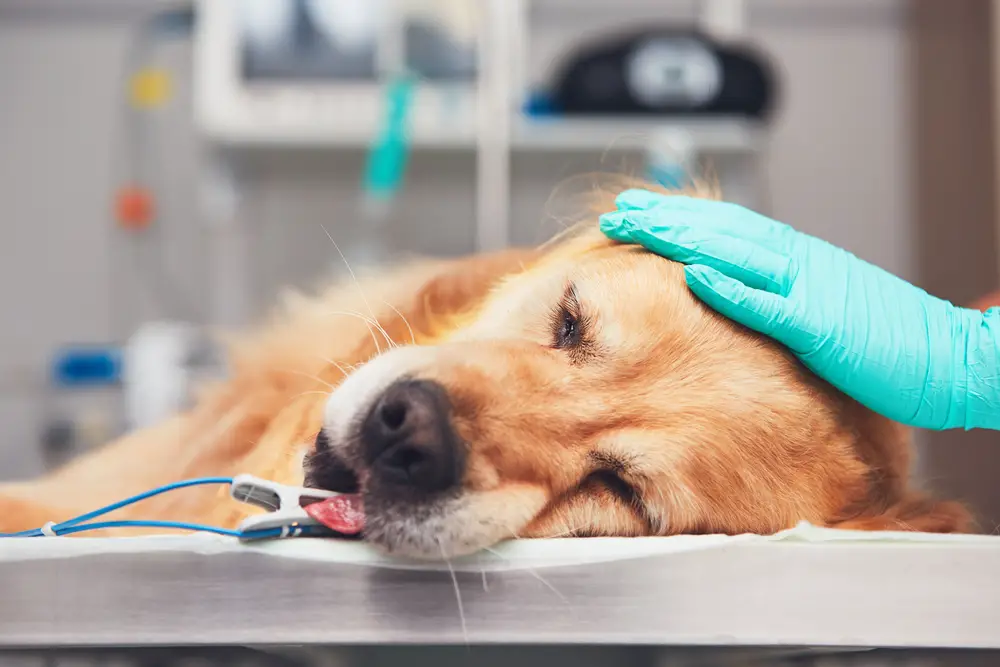
Xylitol is a sugar substitute found in many sugar-free products such as gum, candies, and even some peanut butters. While it’s harmless to people, it’s highly toxic to dogs, causing a rapid release of insulin and leading to hypoglycemia or low blood sugar. It’s a condition that can quickly become life-threatening if not treated immediately, with symptoms like vomiting, loss of coordination, and seizures.
The Pet Poison Helpline emphasizes the need for pet owners to read labels carefully and be aware of the potential for xylitol poisoning. It’s not just about avoiding gum or candy; you’ll find xylitol in toothpaste, mouthwash, and some baked goods, making vigilance essential. Keep these items well out of reach and consider switching to pet-safe alternatives. Awareness is your first line of defense against this hidden danger.
6. Alcohol

Alcohol is one of those things that should never make its way into your dog’s bowl, not even as a joke. Dogs are much more sensitive to the effects of alcohol than people, suffering from what’s essentially alcohol poisoning with just a small amount. Common symptoms include vomiting, disorientation, difficulty breathing, and, in severe cases, coma or death.
Never assume that a small taste of beer or wine is harmless. Even foods cooked with alcohol or unbaked bread dough can pose a risk due to fermentation. Always make sure that any alcoholic beverages or foods containing alcohol are securely stored. And if a spill occurs, clean it up immediately and thoroughly.
7. Caffeine
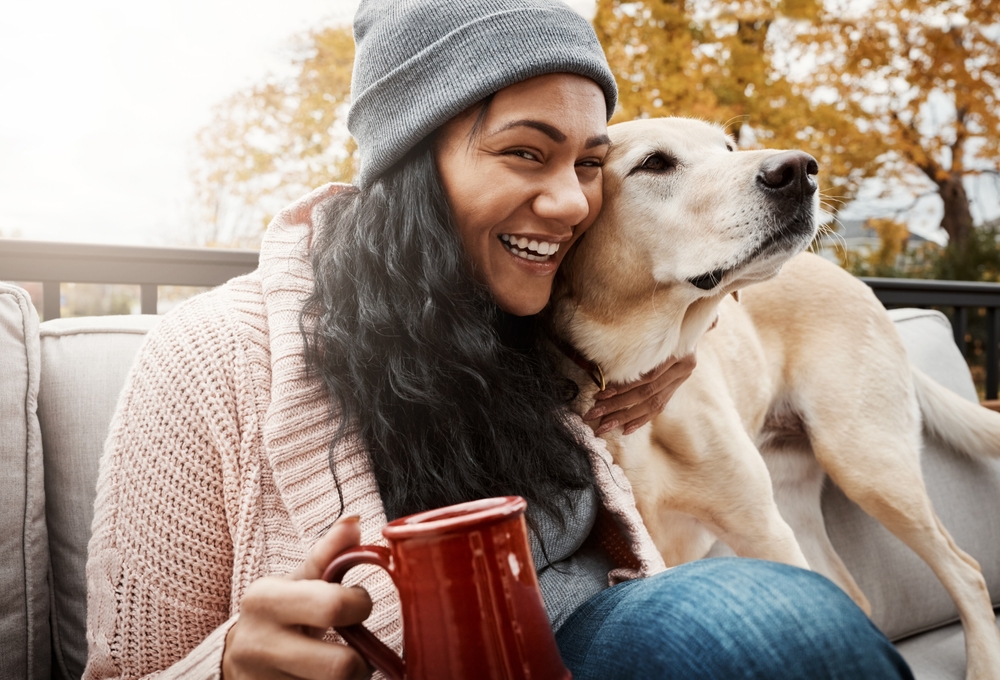
Your morning ritual might involve a cup of coffee or tea, but you should think twice before sharing it with your dog. Caffeine is toxic to dogs and can cause symptoms like restlessness, rapid breathing, heart palpitations, and even tremors or seizures. The compound affects dogs much more intensely than people, and even small amounts can be dangerous. Research published in the Journal of Toxicology and Environmental Health highlights the rapid onset of symptoms following caffeine ingestion in dogs, emphasizing the need for immediate veterinary care.
Ensure your coffee, tea, or energy drinks are kept well out of reach. Be cautious about coffee grounds or tea bags, which can be easily overlooked. Prioritizing pet safety when caffeine is around keeps your mornings peaceful and panic-free.
8. Macadamia Nuts
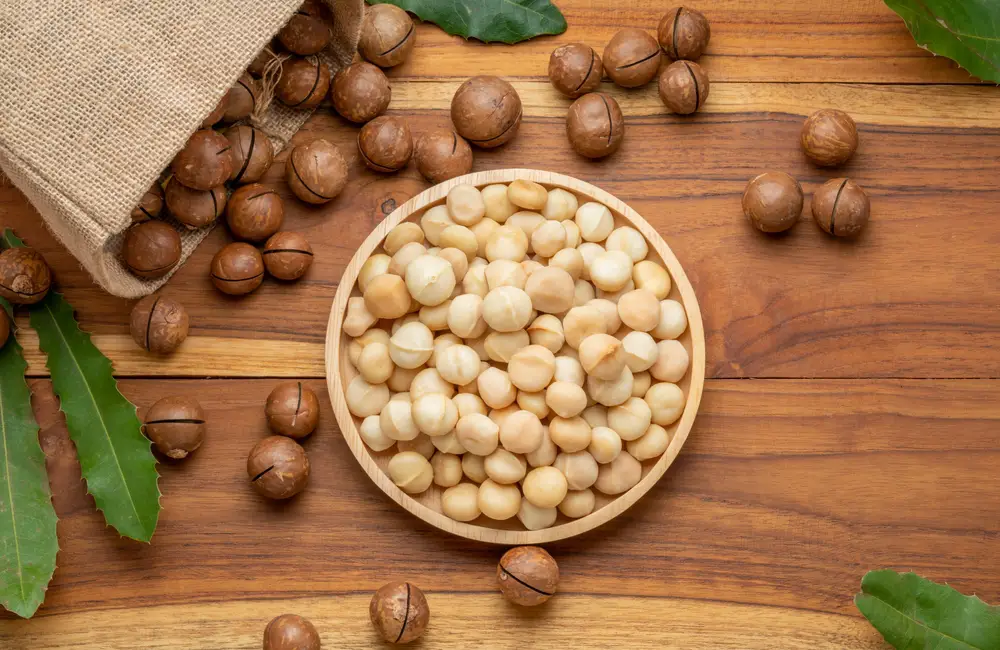
Macadamia nuts are a luxurious snack for people but a toxic hazard for dogs. Even a small amount can cause symptoms like weakness, vomiting, tremors, and hyperthermia. The exact toxin in macadamia nuts remains unidentified, but the effects can be distressing and severe for your pet.
If you enjoy these nuts, be diligent about where you keep them. Even baked goods containing macadamia nuts can be risky if left within a dog’s reach. Instead of sharing, have some dog-safe treats on hand to satisfy their curiosity. It’s an easy switch that helps keep them safe and healthy.
9. Corn on the Cob
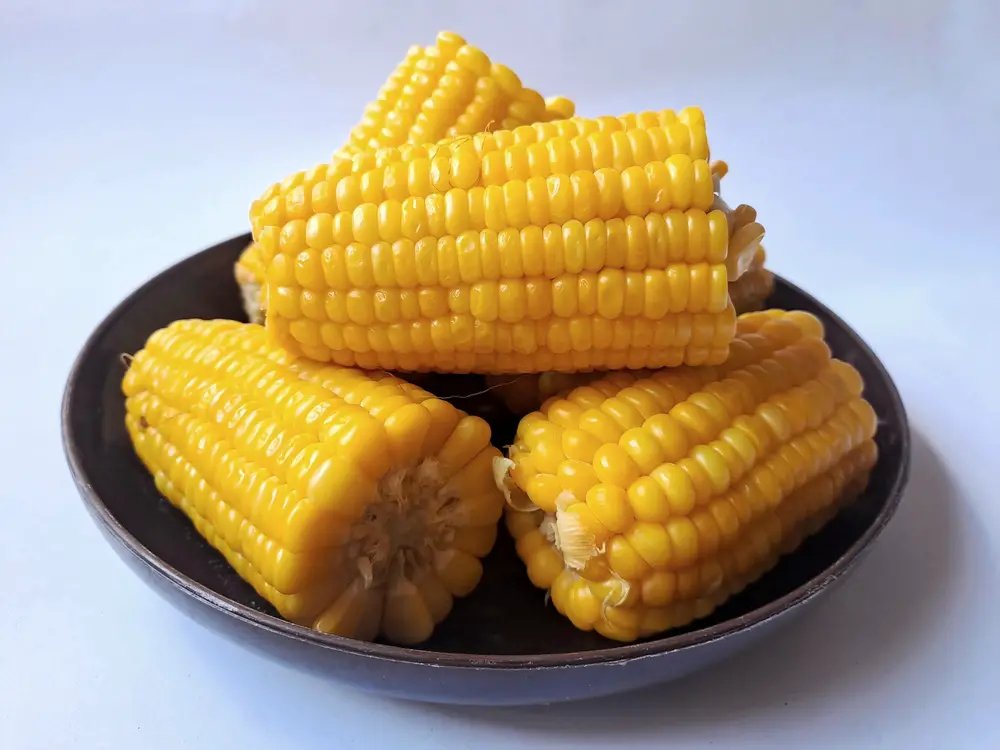
Corn itself isn’t harmful to dogs, but the cob poses a significant risk. Dogs can choke on the cob or, if swallowed, it can cause a blockage in the intestines. This can lead to severe complications, including the need for surgical intervention.
If your dog loves the taste of corn, consider offering them corn kernels instead of the whole cob.
Always supervise them with any new food to monitor their reaction. Stay vigilant during summer barbecues when corn cobs are more prevalent. A little caution can prevent a lot of pain.
10. Yeast Dough
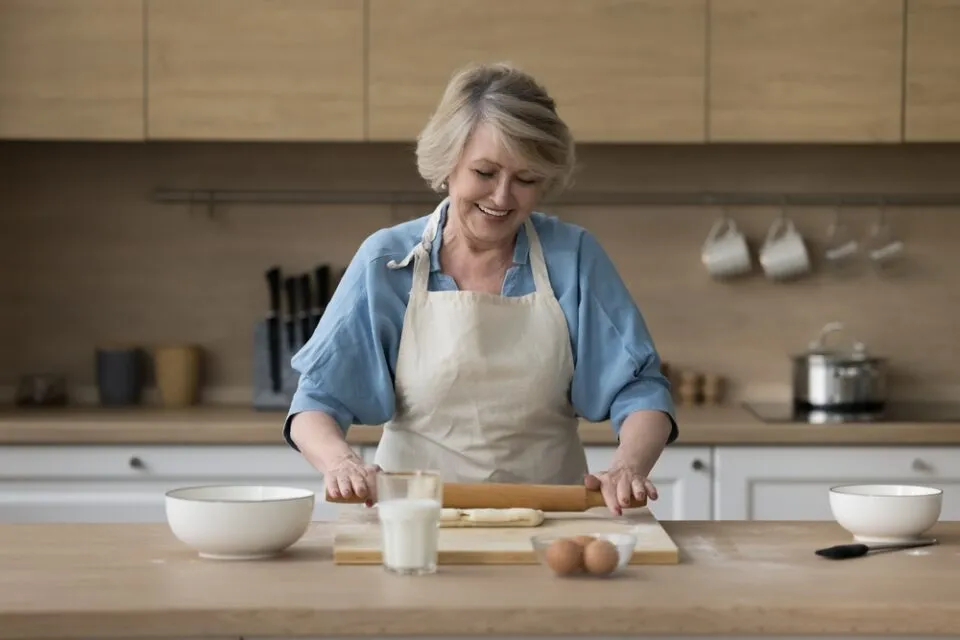
Unbaked yeast dough can be a hidden danger for dogs. Once ingested, the dough can rise in your dog’s stomach, causing painful bloating and potentially dangerous gastric torsion. Moreover, as the dough ferments, it produces alcohol, which can lead to alcohol poisoning.
If you bake at home, keep your dough well out of reach of curious noses. Consider placing rising dough in the oven or a high cupboard. Be aware that discarded dough in trash bins can also be a temptation for pets. Extra caution during baking sessions can keep your pet safe and your kitchen mishap-free.
11. Fat Trimmings and Bones

It might be tempting to give your dog a taste of the rich fat trimmings from your steak or a bone to gnaw on. However, fatty foods can lead to pancreatitis in dogs, and bones can splinter, causing choking or internal injury. Pancreatitis is a painful condition that requires veterinary care and can become chronic.
Instead, opt for dog-friendly chews and treats specifically designed to be safe and satisfying. If you want to share a little bit of your meal, ensure it’s lean and unseasoned. Educate friends and family about these risks during gatherings to prevent well-meaning but dangerous sharing. Mindful choices can help prevent unnecessary vet visits and keep your dog healthy.
12. Milk and Dairy Products
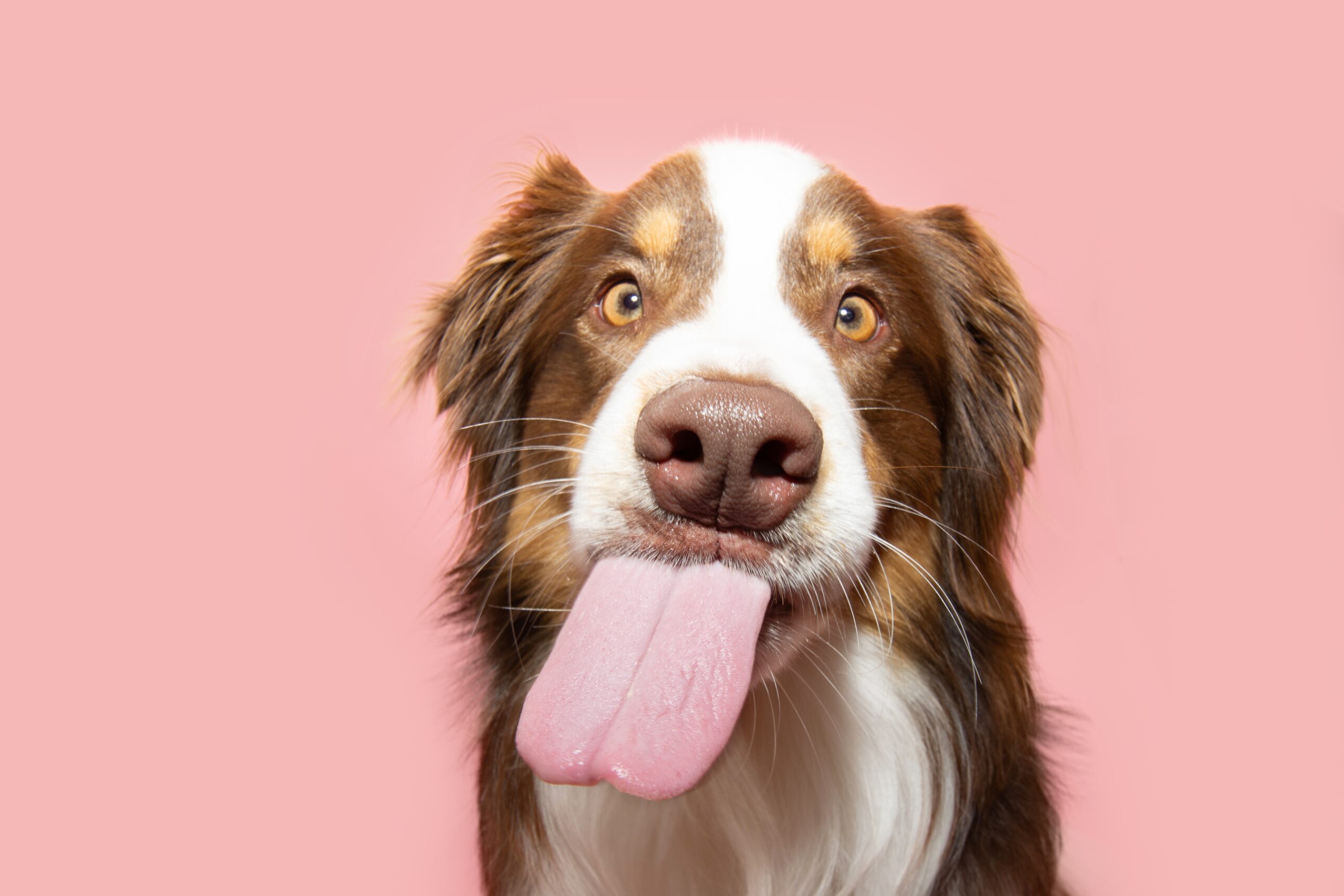
While some dogs can tolerate dairy, many are lactose intolerant without you realizing it. Symptoms can include stomach upset, diarrhea, and gas. In severe cases, the reaction can be more pronounced and require veterinary attention.
If you notice your dog reacts poorly to dairy, it’s best to eliminate it from their diet entirely.
With so many lactose-free products available, you might be tempted to experiment, but it’s safer to stick with what you know works. Consider consulting your vet for advice on your dog’s dietary needs. Staying informed can help avoid unnecessary discomfort for your pet.
13. Raw Meat and Fish
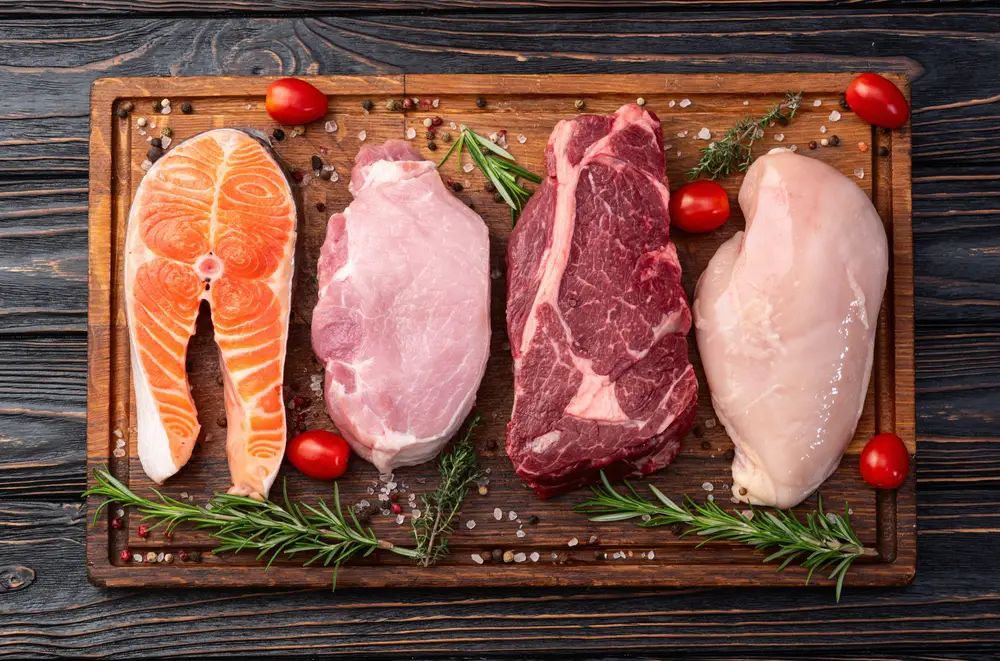
Raw diets are a trend for some dog owners, but they come with risks. Raw meat and fish can harbor bacteria or parasites that can make your dog sick. Salmon, trout, and other fish from certain regions can contain parasites that lead to “salmon poisoning disease,” which is potentially fatal.
If you’re considering a raw diet, consult with your vet to ensure it’s safe and balanced. Proper storage and handling are crucial to minimize the risk of contamination. Supplements or commercially prepared raw diets might be a safer option. Your pet’s health is paramount, and expert advice can guide you in making informed choices.
14. Salty Snacks
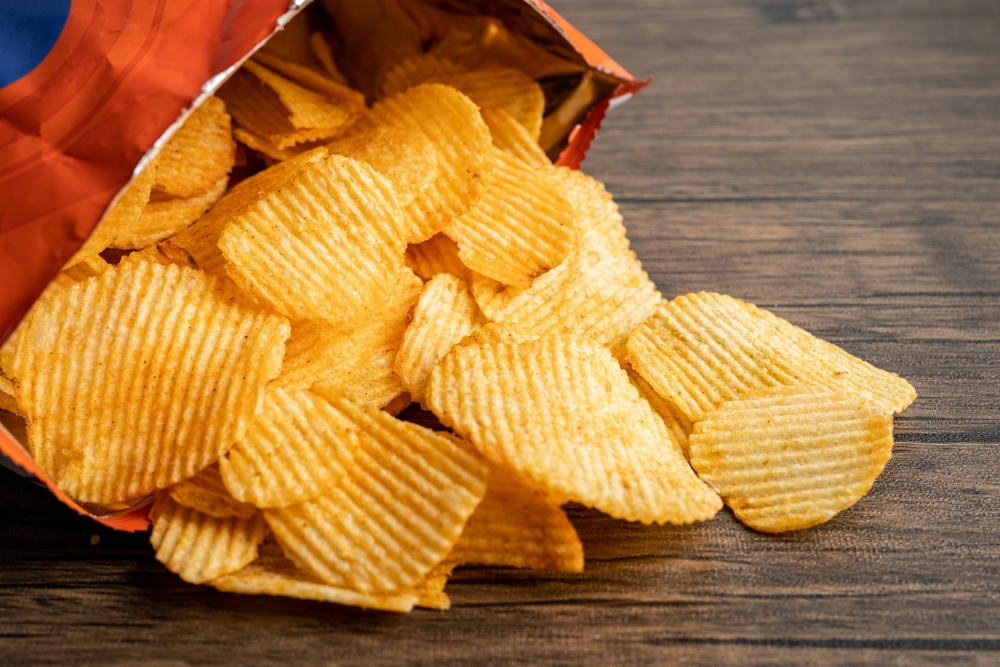
Salty snacks like chips or pretzels might be your go-to for a quick bite, but they can lead to sodium ion poisoning in dogs. Symptoms include excessive thirst, vomiting, diarrhea, and, in severe cases, seizures and death. Dogs’ bodies aren’t equipped to handle high sodium levels as well as humans.
When sharing snacks, ensure they are low-sodium or salt-free and dog-friendly. Keep an eye on family and friends who might share their snacks unthinkingly. Educating those around you can prevent accidental harm. Your diligence can ensure your dog’s snack time is enjoyable and safe.
15. Sugary Foods and Drinks

Just like people, dogs can suffer from the ill effects of sugar. Over time, a diet high in sugar can lead to obesity, dental issues, and even diabetes. It’s a temptation that can impact their quality of life and lead to significant health issues down the line.
When treating your dog, opt for treats specifically designed for their dietary needs. Fruit can be a natural alternative, but moderation is key given the natural sugars present. Always read labels and be cautious of hidden sugars in foods. A little awareness can go a long way in maintaining your dog’s health and happiness.
